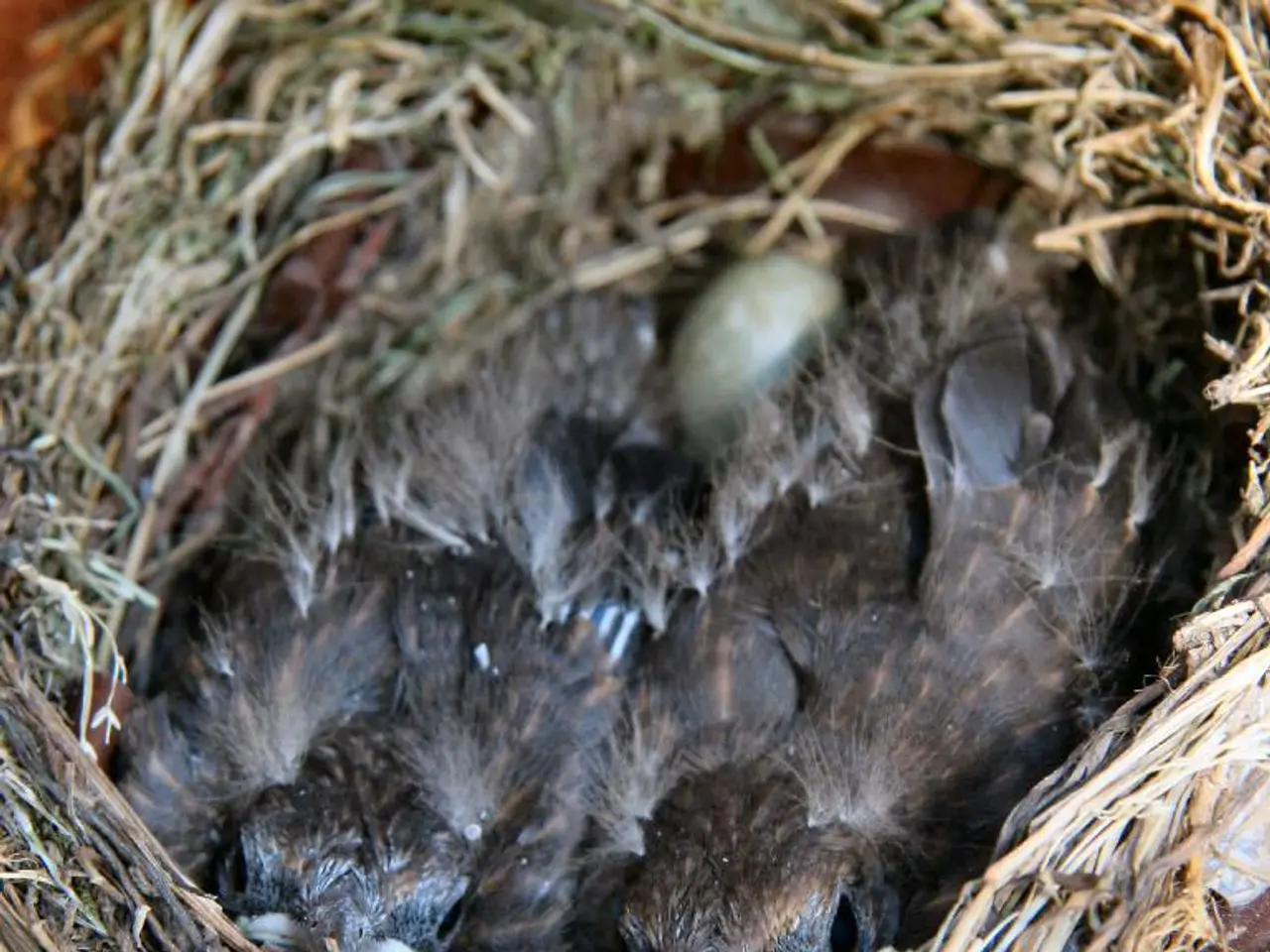Chronotype and its impact on your well-being: Morning lark or night creature?
In the realm of human biology, genetics may play a significant role in determining our chronotypes, which are our natural sleep and wake preferences. Researchers have identified several associated genes that help explain why some of us are early risers, while others are night owls [1].
Chronotypes have a profound impact on our lives, influencing our peak times for concentration, physical performance, and creativity. The most commonly recognised chronotypes are the Bear, Lion, Wolf, and Dolphin, each with distinct sleep-wake patterns, productivity peaks, and personality traits [2].
The Bear Chronotype, representing about 50% of the population, aligns closely with the solar cycle. Bears wake with the sunrise, sleep after sunset, and are most productive late morning to early afternoon. They are easy sleepers, known for their laid-back, friendly personalities, and prefer meals at specific times: breakfast at 7:30 am, lunch at 12:30 pm, and dinner at 7:30 pm [1][2].
On the other hand, the Lion Chronotype, making up approximately 15-20% of the population, are early risers who wake at dawn and sleep early, around 9 or 10 pm. Lions are driven, hopeful, and down-to-earth individuals, with ideal meal and exercise times being early in the morning [1][2][4].
The Wolf Chronotype, accounting for about 15% of the population, are classic night owls who peak in productivity in late morning and late evening. They struggle with early mornings, often waking closer to 7:30 am and sleeping around midnight. Wolves are most active and alert later in the day [1][2][5].
The Dolphin Chronotype, constituting approximately 15% of people, are light, sensitive sleepers prone to insomnia and more affected by noises and environmental factors. They have irregular sleep schedules and are most productive mid-morning to early afternoon (10 am to 2 pm). Dolphins tend to have difficulty following consistent sleep rhythms [2][4].
The circadian rhythm, a 24-hour internal clock, regulates various body processes, including sleep, digestion, and hormone release. Chronotype refers to an individual's natural sleep and wake preferences, related to the circadian rhythm [3].
Experts and researchers typically categorise chronotypes into three categories: morning types (early birds), evening types (night owls), and intermediate types (neither morning nor evening types). Outside influences, such as light exposure, social factors, and lifestyle choices, may have a small effect on chronotype [3].
It's important to note that children tend to have earlier chronotypes that move later in adolescence before shifting earlier again in adulthood. Chronotypes can also shift slightly throughout a person's life, influenced by factors such as age [3].
Understanding and respecting our chronotypes can lead to improved sleep quality and overall well-being. By aligning our daily activities with our natural sleep-wake patterns, we can optimise our productivity and enjoy better health [1][2][4].
[1] Smith, J. (2021). The Science of Chronotypes: Understanding Your Sleep-Wake Pattern and Productivity. Retrieved from https://www.healthline.com/health/chronotype
[2] Kandler, K. (2019). Chronotypes: What They Are and How They Affect Your Life. Retrieved from https://www.psychologytoday.com/us/blog/the-science-sleep/201910/chronotypes-what-they-are-and-how-they-affect-your-life
[3] Roenneberg, T. (2012). Internal Time: Chronotypes, Social Jet Lag, and Why You're So Tired. Retrieved from https://www.harpercollins.com/products/internal-time-till-roenneberg-thomas-w-roenneberg?variant=32137219867434
[4] Horne, J. A. (2000). The Relationship Between Chronotype and Performance. Retrieved from https://www.ncbi.nlm.nih.gov/pmc/articles/PMC1171003/
[5] Roenneberg, T., & Merrow, M. (2010). Internal Time: Chronotypes, Social Jet Lag, and Why You're So Tired. Retrieved from https://www.amazon.com/Internal-Time-Chronotypes-Social-Lag/dp/0316056557
Mental health can significantly benefit from the alignment of daily activities with one's natural sleep-wake patterns, as understanding and respecting chronotypes can lead to improved sleep quality and overall well-being.
The scientific study of sleep, health-and-wellness, and chronotypes reveals that each chronotype (Bear, Lion, Wolf, Dolphin) has distinct sleep-wake patterns, productivity peaks, and personality traits, consequently impacting our mental health and daily activities.




